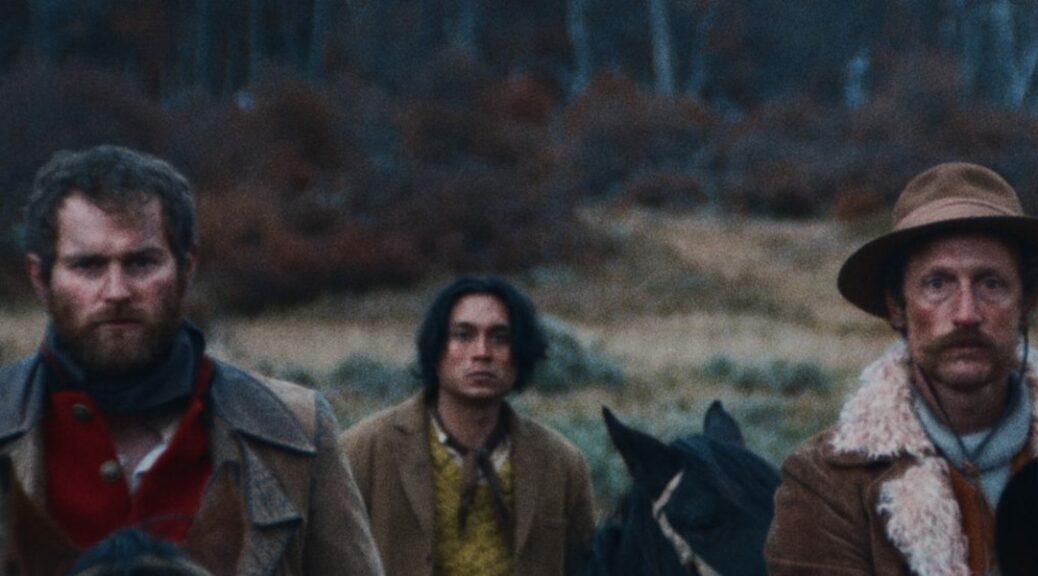The Settlers
by Hope Madden
It’s amazing how often the beauty of unconquered land is met with the ugliness of conquest in film, as deceptively tranquil images of vast, open space underscore the heinous brutality of colonialism.
Co-writer/director Felipe Gálvez Haberle (with a massive assist from cinematographer Simone D’Arcangelo) draws you in with the same aesthetic for his gripping and ruggedly gorgeous indictment of Chile’s history in The Settlers.
An artful and unflinching portrait of atrocities inflicted on South America’s Ona people, The Settlers is a historical indictment not unlike Jennifer Kent’s 2018 study in tension and colonial horror, The Nightingale.
Three men set off across a wealthy landowner’s vast property in 1901: one Scottish soldier (Mark Stanley), one Texan gun-for-hire (Benjamin Westfall), and one native tracker (Camilo Arancibia). Their stated mission is to clear a path for the landowner’s sheep to the ocean. Their actual goal, as tracker Segundo would soon realize, is the sweeping slaughter of all indigenous people on the land.
Act one keeps its distance. There’s little dialog and scenes are mostly shot from afar, Chile’s inhospitable vastness on display. Act two brings the camera and us a little closer to the action, and the cinematic vision morphs from art-Western to something closer to horror.
The third act pivot feels more jarring. The austerity of a chamber piece sets the film on its side, but Gálvez Haberle never loses control. Indeed, it is control itself he is depicting, and the effect is chilling.
These bold shifts in structure and tone do less to undermine the tension than to alter it, set it in another direction. The safer Haberle makes the situation feel, the more institutional the horror becomes. When capitalism, politics and religion work together to redirect and rewrite history, the ugliest things are possible.
Arancibia’s performance is mainly silent, the horror of the unprovoked slaughter registering little by little across his guarded expression. Even more stunning is Mishell Guaña as a indigenous woman who becomes part of the expedition. Guaña wears a lifetime of distrust and injustice so wearily, so angrily on her face.
The true story of one nation’s history of genocide, The Settlers is unsettling universal. What Gálvez Haberle does so effectively is take it to the next step, where a nation’s brutally criminal past becomes its sanctified, sanitized history.




